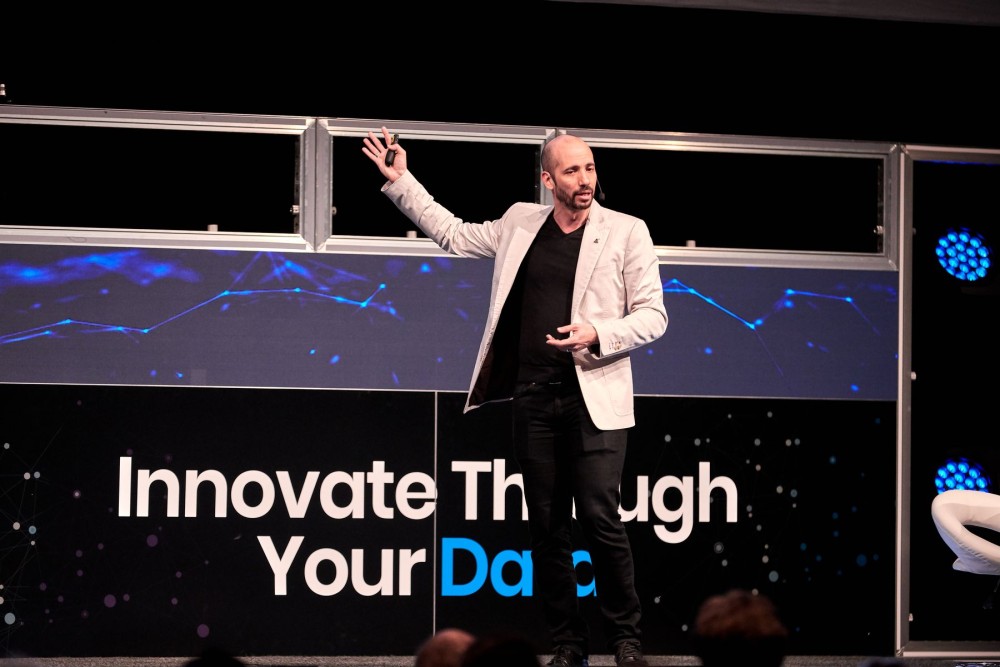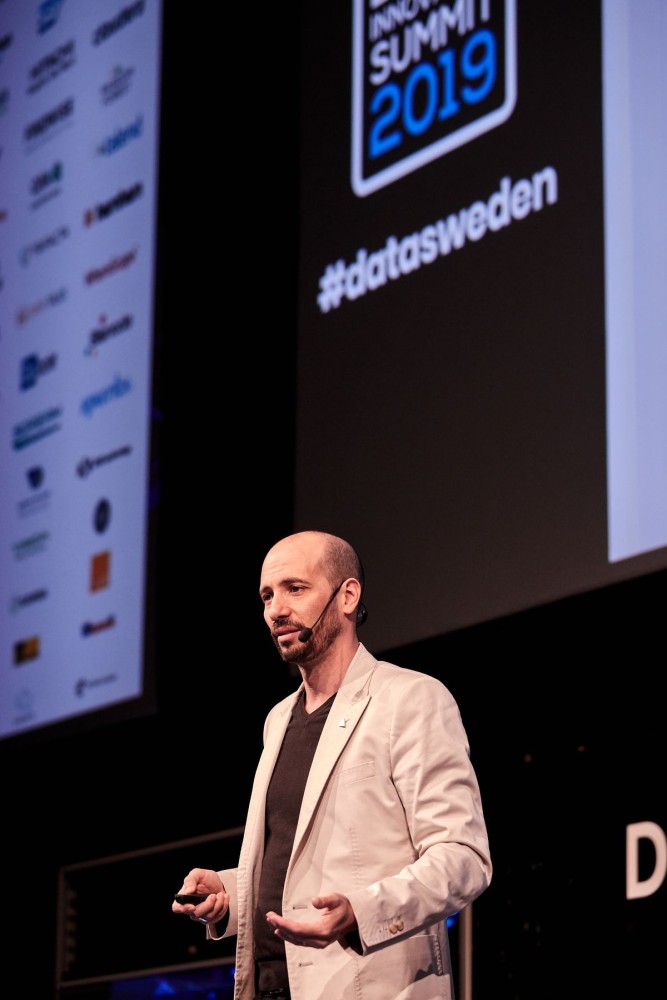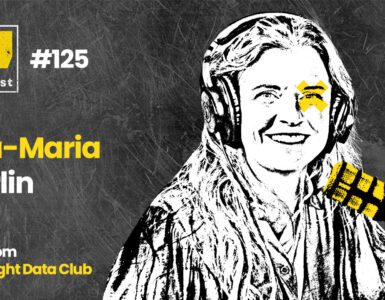It can’t be stressed enough that if your company wants to do the cool stuff with data like AI, machine learning, analytics, you have to have control over your data in a form of a solid data governance framework. It’s similar to wanting to build a fancy facade on your house, but you haven’t built the foundation – practically impossible.
Data governance topic is a recurrent one in our speakers’ presentations and our Hyperight Read articles. However, it’s a complicated area for companies and most of them fail at deploying a data governance programme, as David Dadoun, previously Senior Director Business Intelligence and Data Governance at the Aldo Group, and currently Head Of Enterprise Data and Business Intelligence at Ubisoft, stated at the Data Innovation Summit 2019.


Referring to his previous talk, David states that only 10% of organisations that deploy data governance are going to get any tangible benefit from it, which is really discouraging considering the time, effort and resources that are put into them.
Although David Dadoun is in a different position, we are going to do due diligence to his talk describing how the Aldo Group leverages data for operational excellence.
In a previous presentation, David also explained how Aldo established their data governance programme, where he also talked about the most common reasons why data governance projects fail, and the steps they took and changes they made in order to have a successful data governance framework in place.


How Aldo leveraged data founded on a sound data governance framework
In the gruelling, fast-moving retail industry, data can give the right insights for better business decision-making.
David brings our attention to 3 data-driven projects within the Aldo Group which helped to achieve operational excellence. The data-driven projects built off of a sound data governance framework which they had previously established.
“No good AI, analytics, BI, machine learning project is going to work if it’s just a technology-driven initiative. It needs to be addressing a business opportunity or solving a business problem”, David stresses.
Metrics on the Move project
The Metrics on the Move initiative originated from a conversation David had with the VP of Sales at Aldo talking about the way sales associates, district managers, VPs, directors get access to data while they’re on the road. The response was an expected one – with reports, sent in PDF or Excel formats, via email.
Anyone that has tried to read a 50-rows long report while on a business trip, would know the outcome of it – it doesn’t take long until frustration starts setting in. On top of that, the freshness of the data is far from real-time.
The project goal was to abandon the static enterprise reporting in a PDF document and introduce interactive data visualisation.
“Humans’ brains are engineered to look at an image and derive a pattern. For millions of years we’ve been wired to look at patterns, why do we think that we can derive insights from a big spreadsheet with numbers?”, asks David.


One of the key aspects they were looking for in the solution was to be near real-time, because in sales the developments in the last hall hour may impact on the sales objectives.
The crucial success factor was to engage key executives from different levels in the project and get their support. The requirements and KPIs were established together with all involved users from store sales managers to VP of Sales. The Metrics on the Move initiative prepared the ground for the stealth governance programme David implemented at Aldo.
As David also mentioned, branding the initiative is another success factors. So adhering to this principle, he never referred to it as a data governance programme. He branded it as a mobile analytics and data visualisation initiative – which sounds much fancier than data governance.
Apart from being easy and fun to use and give faster access to data, the project needed to be planned for, tested and presented into a business case which showed the actual value from the project in figures. The user adoption of Aldo’s data programme was 90% – which is unheard of compared to the industry average of 30%.


No good AI, analytics, BI, machine learning project is going to work if it’s just a technology-driven initiative. It needs to be addressing a business opportunity or solving a business problem.
The quality control case study
Another project at Aldo that embedded stealth governance was the quality control initiative. The initiative transformed the product quality control process. Before it was introduced, inspectors entered data manually into Excel risking data inconsistency, accountability and auditing.
When he pushed the initiative, David put the accent on improving data quality, which would also improve the quality of products. Also, David emphasised that changing the process and improving the data quality would result in reducing manual work for inspectors. With having more available people and resources, they would be able to expand the number of inspections at no additional cost.


The end result is an audit app that streamlined their quality control process with standardised data entry forms, quality control over the data and full auditing control over the data generated throughout the process. Once all the data is entered, it’s automatically taken to the cloud without the need for manual manipulation of data and creating PDF and Excel reports. Thanks to this, they are able to detect defects instantaneously on the app without having to wait 2 days for the analysis results.
The clean, controlled, structured data is updated to Aldo’s BI data warehouse in the real-time and is governed by the data warehousing team. Analytics team can run predictive analytics, find patterns and trends, and visualise issues with trusted data coming from a governed data source, which results in insights for all business users. The initiative was small and inexpensive, but it resulted in a 1500% in ROI and governance over their data captured throughout the process.
Understanding consumer demand
“One of the biggest challenges, no matter the industry, is forecasting demand – what and when people want”, states David. One of the reasons for this is that sales is used as a proxy to forecast demand. This is resulting in nothing but a self-fulfilling prophecy because companies are predicting sales for the current year based on sales from the year before. But that doesn’t mean that people actually wanted to buy those products. “If you were out of stock for some products, you don’t know people wanted those products”, clarifies David.
The actual customer demand comes from the first contact with customers – the sales associate in the store. When a product a customer asks for is out of stock, stores usually fail to capture that information. It causes loss of upsell or cross-sell opportunity because the sales associate left the customer to look for a product that it’s not there, but most importantly loss of information of what customers actually want.


But Aldo wasn’t going to let that happen. As a retail company that reinvents itself and does things outside the box, Also digitalised the first-line sales process. The retail brand provided the sales associates with iPods which allow them to scan requested products instead of searching for them in the back store, and to capture the actual demand, while at the same time the sales associates don’t abandon the customer during the transactional process.
The demand data is transferred to the data warehouse which is used to predict consumer demand, optimise product flows and plan production. The data insights allow Aldo to run great data analytics which is revolutionising how they sell their products.
















Add comment